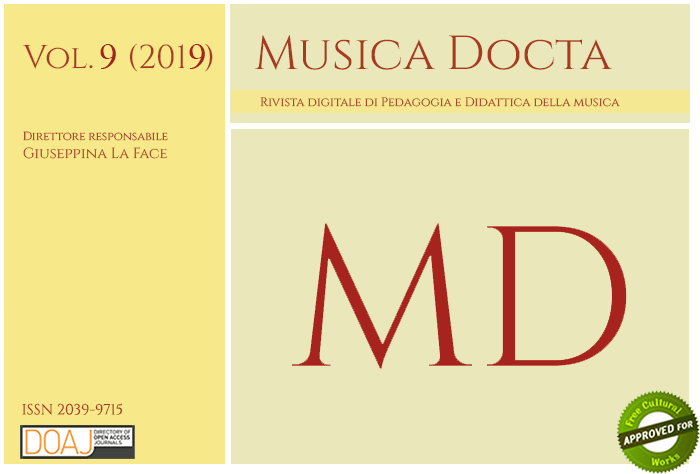Music as Liberal Art: the Continuing Relevance of Medieval Music Pedagogy in Teacher Education
DOI:
https://doi.org/10.6092/issn.2039-9715/10198Keywords:
Medieval Music, Public School Teaching, PraxialismAbstract
The concepts and ideas of the medieval liberal arts continue to have important relevance in modern training music teachers. The division between a theoretical knowledge about music and a practical experience of musical activities (divisions that might be described as musica speculativa and musica practica) is also being played out in the training of public school teachers in debates regarding the concept of ‘praxialism’ in music education as can be seen in four specific areas: (1) textbooks for courses on the history of music education, (2) resources used in teaching the philosophy of music education, (3) examples of medieval music in contemporary K-12 education, and (4) the scholarship on teaching and learning as applied to music of the Middle Ages. Extending the concept of ‘praxialism’ broadly to include how we teach early music at the college level to future public school teachers may further the discussion of the relevance of medieval music in a positive direction.
Downloads
Published
How to Cite
Issue
Section
License
Copyright (c) 2019 Matthew C. Balensuela
The copyrights of all the texts on this journal belong to the respective authors without restrictions.
This journal is licensed under a Creative Commons Attribution Share-Alike 4.0 International License (full legal code).
See also our Open Access Policy.
Metadata
All the metadata of the published material is released in the public domain and may be used by anyone free of charge. This includes references.
Metadata — including references — may be re-used in any medium without prior permission for both not-for-profit and for-profit purposes. We kindly ask users to provide a link to the original metadata record.






